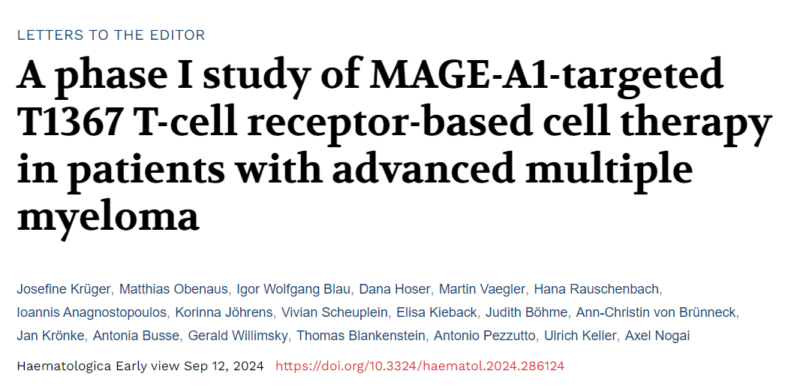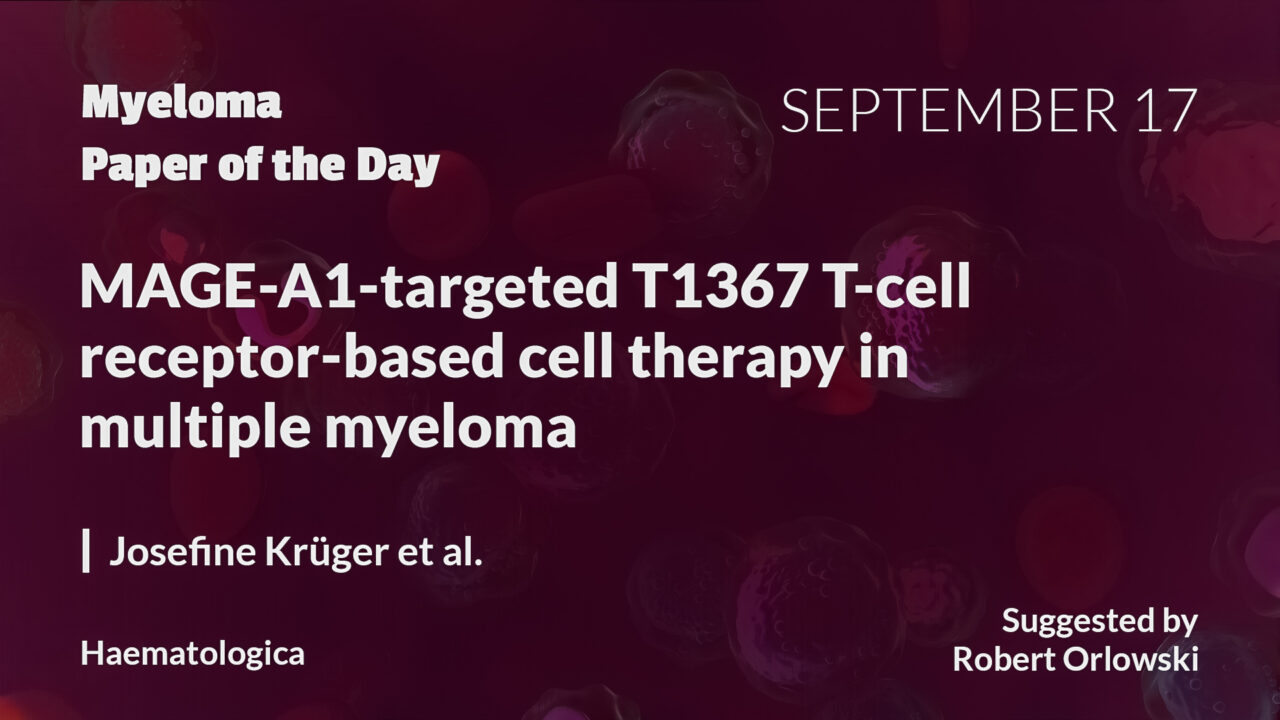Robert Orlowski shared on X:
“Myeloma Paper of the Day: A phase I study of MAGE-A1-targeted T1367 T-cell receptor-based cell therapy in patients with advanced myeloma shows feasibility but no responses out of 2 patients treated.”
Source: Robert Orlowski/X
Authors: Josefine Krüger, Matthias Obenaus, Igor Wolfgang Blau, Dana Hoser, Martin Vaegler, Hana Rauschenbach, Ioannis Anagnostopoulos, Korinna Jöhrens, Vivian Scheuplein, Elisa Kieback, Judith Böhme, Ann-Christin von Brünneck, Jan Krönke, Antonia Busse, Gerald Willimsky, Thomas Blankenstein, Antonio Pezzutto, Ulrich Keller, Axel Nogai.

Other posts featuring Robert Orlowski on OncoDaily.
Robert Orlowski, M.D., Ph.D., holds multiple positions at The University of Texas, MD Anderson Cancer Center including Chairman, Ad Interim Director of Myeloma, and Professor of Medicine in the Departments of Lymphoma/Myeloma and Experimental Therapeutics within the Division of Cancer Medicine. Additionally, he chairs the SWOG Barlogie/Salmon Myeloma Committee, which is part of the National Clinical Trials Network, dedicated to advancing new therapies and understanding the biology of myeloma.
Dr. Orlowski’s expertise lies in both clinical practice and scientific research, with a particular focus on translating laboratory discoveries into effective treatments for patients. He investigates drug resistance mechanisms in myeloma and seeks to identify predictive biomarkers for treatment response. Notably, his past contributions include leadership roles in developing proteasome inhibitors like bortezomib and carfilzomib, as well as monoclonal antibodies such as daratumumab and elotuzumab.


